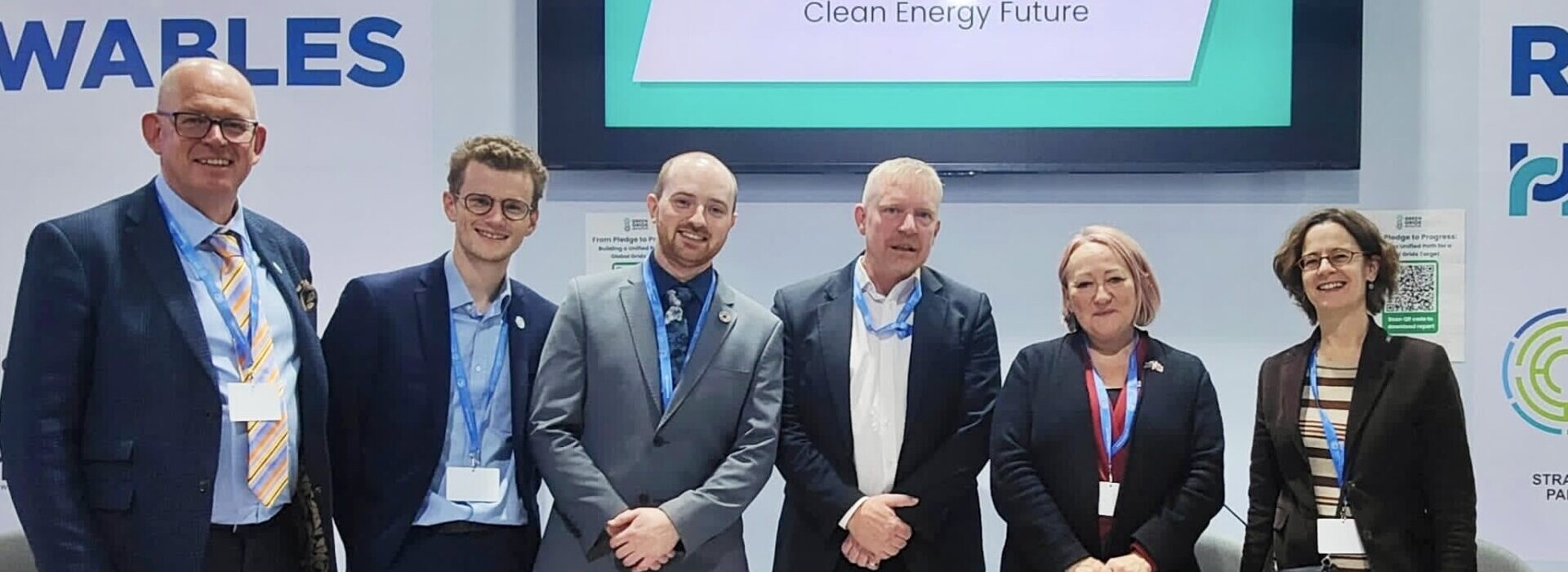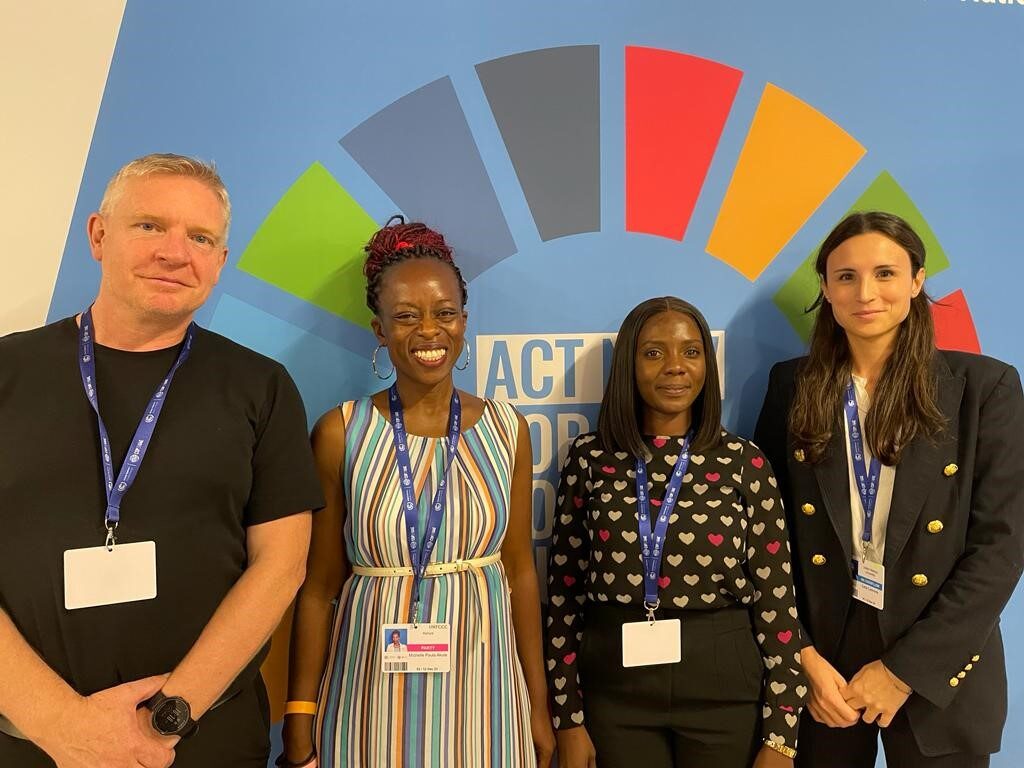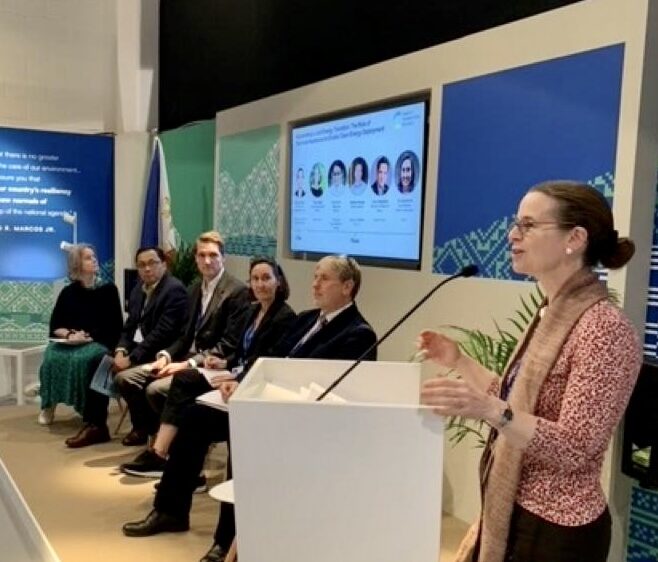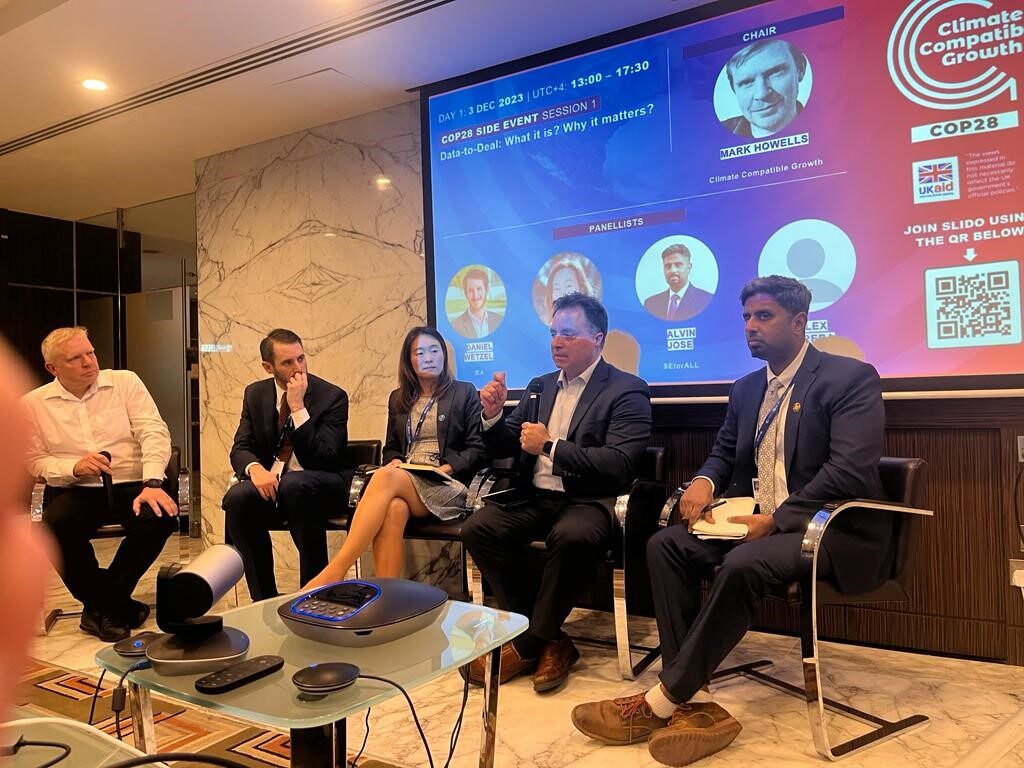CCG actively contributes to key international networks and forums, helping to shape discussions on sustainable energy and mobility. By providing expertise, research, and organisational support, CCG facilitates collaboration between governments, institutions, and experts.
Through intiatives like the OpTIMUS Community, the Green Grids Initiative, AISESA, and SUM4ALL, CCG ensures that open-source tools, evidence-based planning, and strategic insights drive global efforts toward clean energy transitions and sustainable transport solutions.
Some collaborations are formalised via Partnership Agreements, and in other cases cooperation takes place on a more informal basis. Partnership often involves co-funding arrangements, encompassing both financial and in-kind contributions.
Find out more below.
Partnerships
We have formal collaborations with these international organisations.
African Development Bank (AfDB)
Our collaboration with the AfDB and its Sustainable Energy Fund for Africa (SEFA) is central to advancing energy transitions across the continent.
Through this partnership, we facilitate research collaboration and capacity-building initiatives aimed at unlocking private sector investments in renewable energy. Together, we develop and implement strategies that support Just Energy Transition Planning, empowering African countries to achieve universal access to sustainable energy.
This partnership is crucial in aligning our efforts with SEFA’s mission and the broader goals of climate-compatible growth.
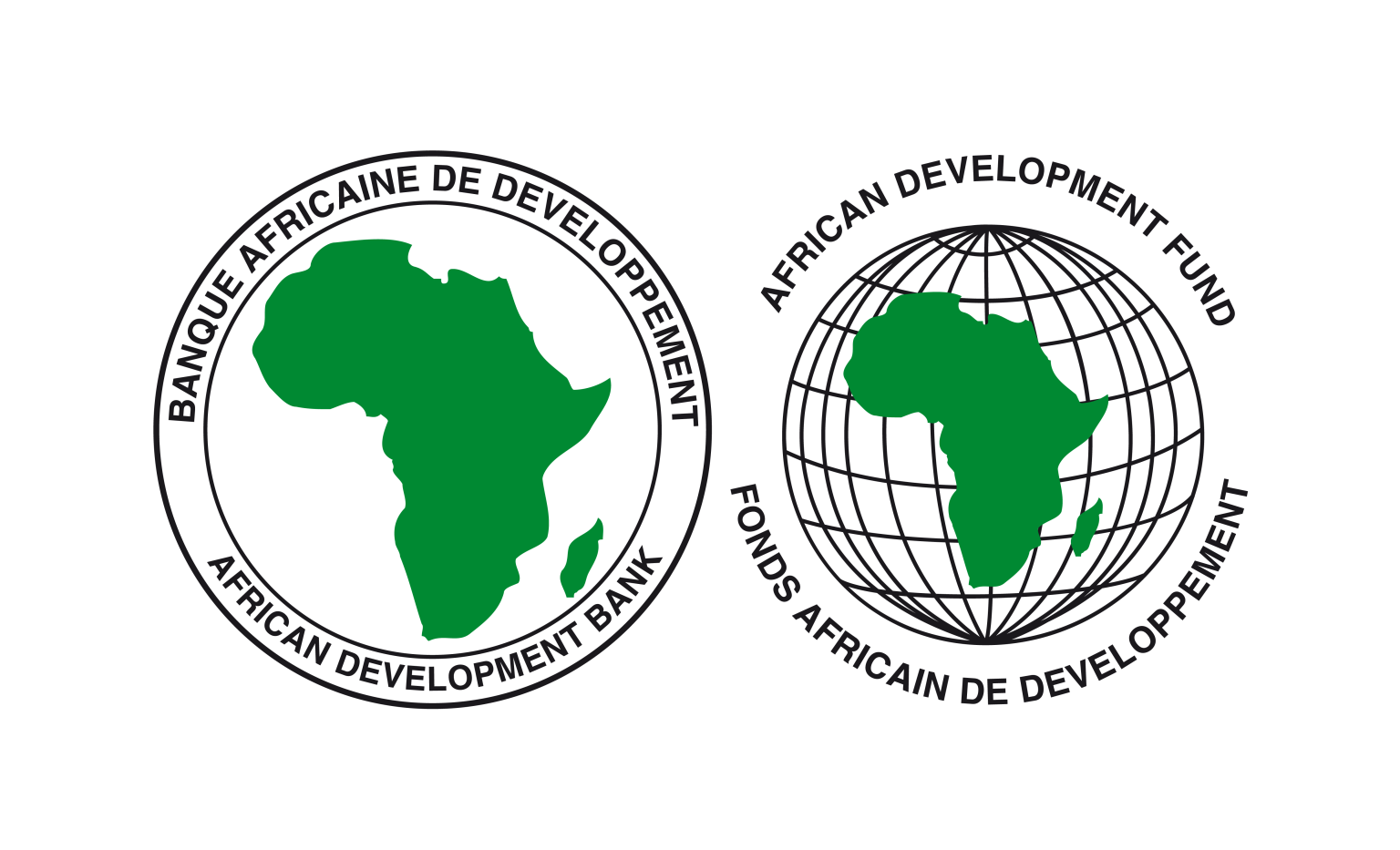
Asian Development Bank (ADB)
In collaboration with the Asian Development Bank (ADB), we are advancing efforts in transport decarbonisation across Southeast Asia.
Recently, we conducted a workshop in Manila to present our work on decarbonisation pathways, and we have submitted a draft report detailing strategies for Vietnam and Lao PDR. This partnership is crucial in supporting sustainable transport solutions in the region, aligning with our shared goals of reducing carbon emissions and promoting sustainable development.
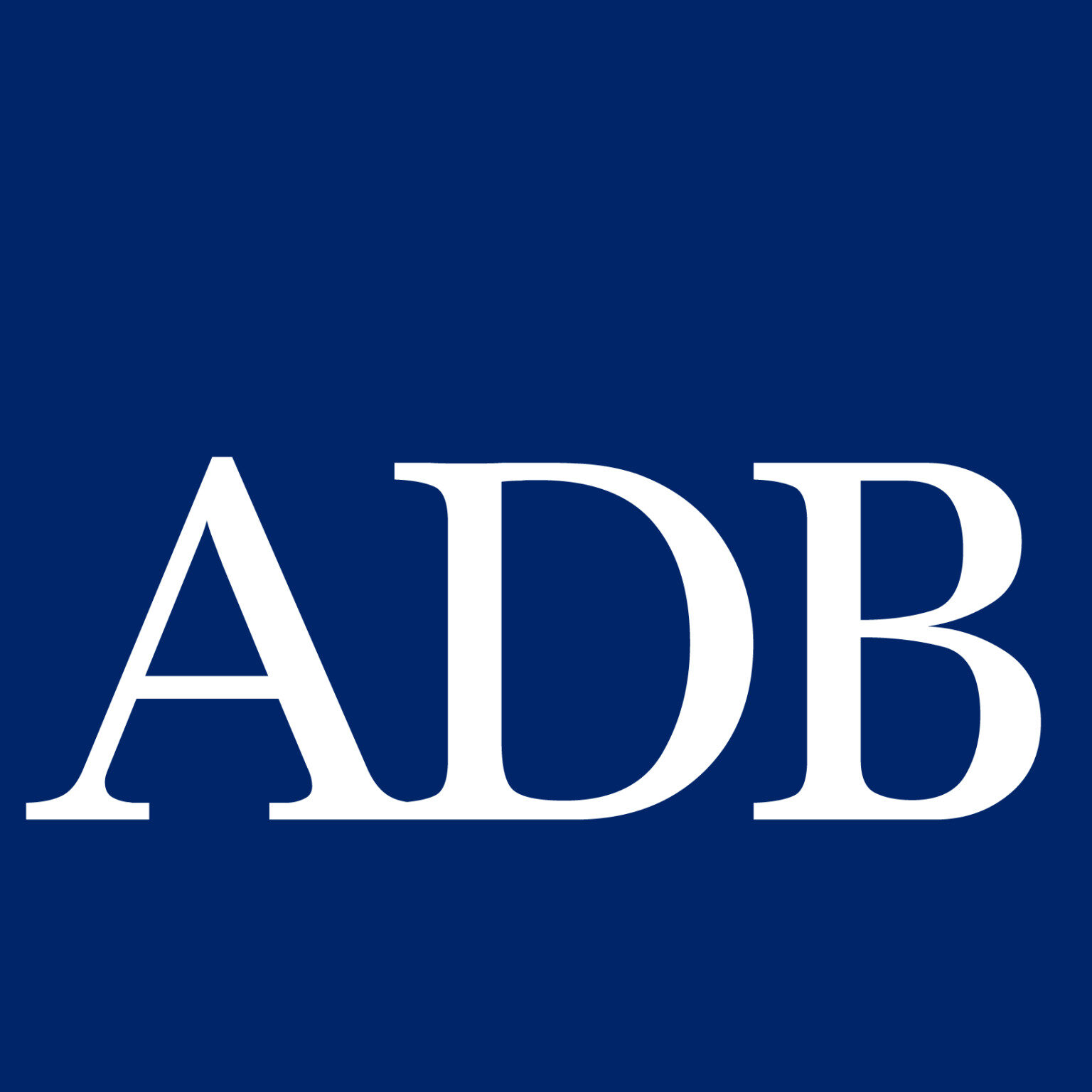
Clean Cooking Alliance
The UN Clean Cooking Alliance has endorsed CCG activities, especially the Energy Modelling Platforms, supporting in dissemination of information, events, and tools.

European Commission (EC)
Together with the EC, as part of the RE-INTEGRATE project, we work to enhance energy modelling in Africa Union countries.
This is done by supporting the African Union-European Union (AU-EU) High-Level Policy Dialogue. We provide capacity-building services via the Energy Modelling Platform and develop operational workflows to empower local analysts. Additionally, we’ve developed French versions of key courses on CLEWs and FINPLAN, and are creating a certification system for trainees and trainers. This partnership also expands educational resources with open-access teaching materials, fostering multilateral knowledge sharing and strengthening energy planning capabilities across eight African countries.
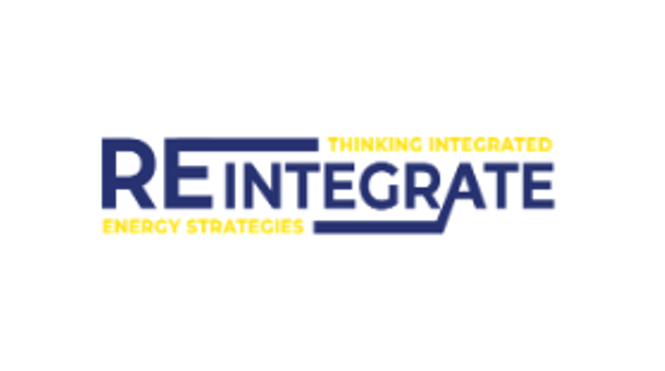
International Atomic Energy Agency (IAEA)
Together, we have released three key energy modelling tools—MAED, FINPLAN, and Energy Balance Studio—as open resources. We collaborate closely on the development of these tools, creating teaching materials, online courses, and organising capacity-building events.
This partnership enhances global access to cutting-edge energy planning tools and supports countries in making informed, technology-neutral decisions to achieve sustainable development goals.

International Energy Agency (IEA)
Our partnership with the IEA has been pivotal in supporting sub-Saharan Africa’s energy decarbonisation efforts.
This is particularly true in Uganda, where our capacity-building work led to a COP28 decarbonisation commitment. We have also delivered targeted training programs for ten African countries, providing hands-on experience with key energy modelling tools such as Energy Balance Studio, MAED, and OSeMOSYS. Together, we developed the Data-to-Deal workflow, integrating seven tools for comprehensive energy modelling. This was launched at the Energy Modelling Platform for Africa in 2024.
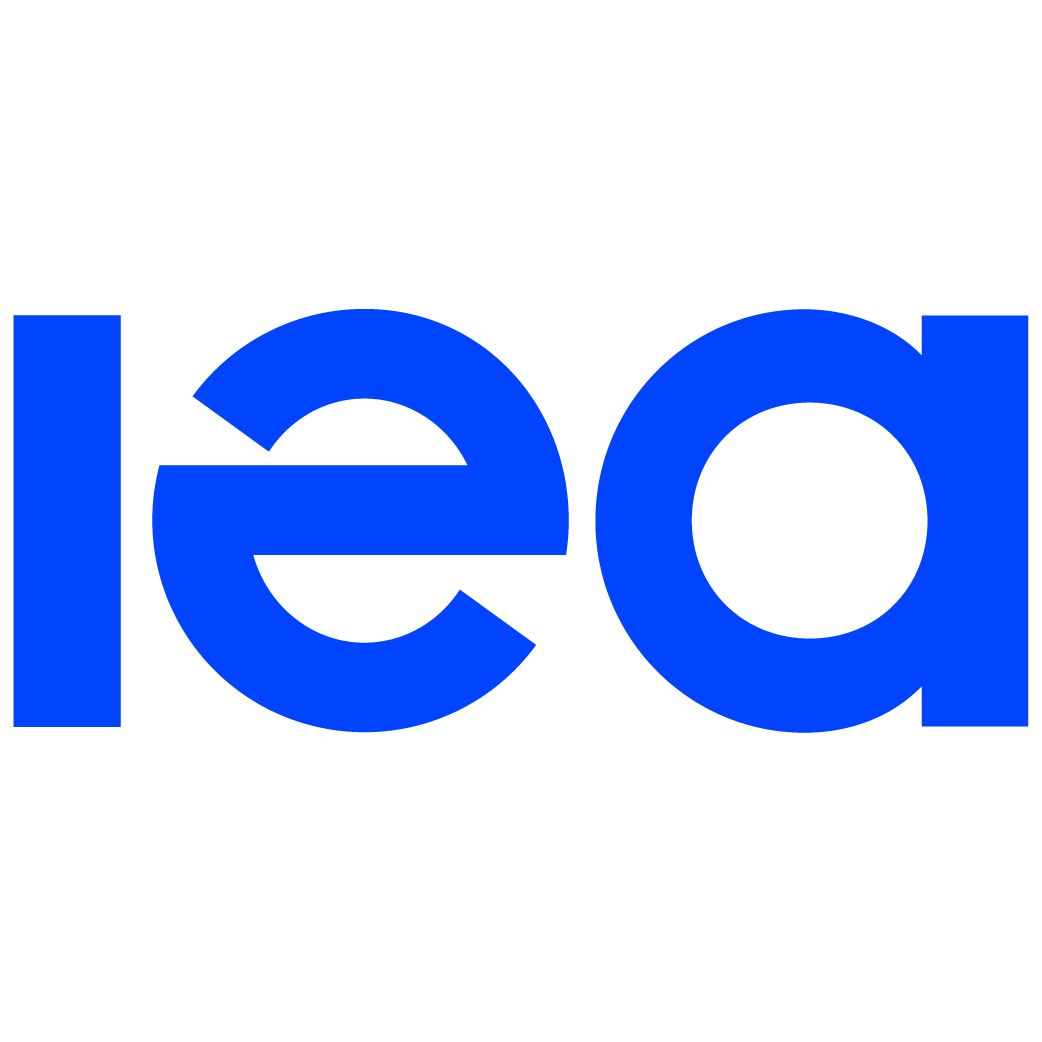
Politecnico di Milano
Together, CCG and Politecnico di Milano have made a notable impact in the field of energy modelling through the introduction of the “Input-Output Analysis and Modelling with MARIO” course.
This course, available via OpenLearn Create, equips users with fundamental skills in quantitative impact assessment methods and models. These are specifically designed to assess the environmental and economic effects of technological or policy interventions from a Life Cycle perspective.
By incorporating this course into CCG’s OpenLearn Collection, Politecnico di Milano contributes to building robust local capacities in the Global South. This partnership highlights a commitment to providing accessible, high-quality training to support sustainable energy development globally.
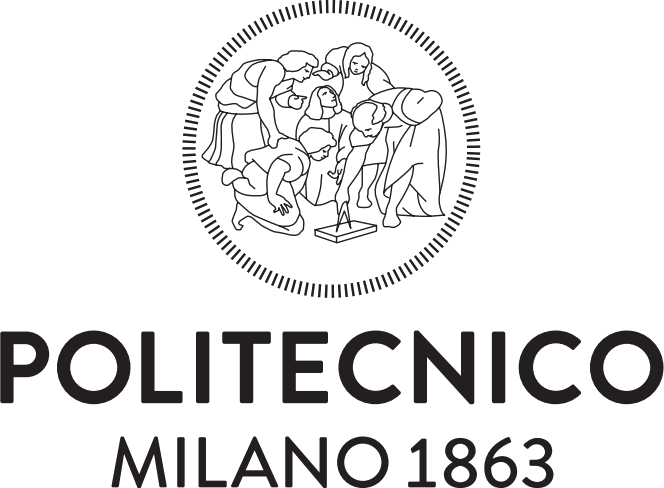
United Nations Economic Commission for Africa (UNECA)
One of CCG’s closest partners, UNECA leads the Energy Modelling Platform for Africa. Jointly, 3 EMP-As have been held in the past 4 years, with UNECA supporting in promotion, dissemination, and organisation of the events.
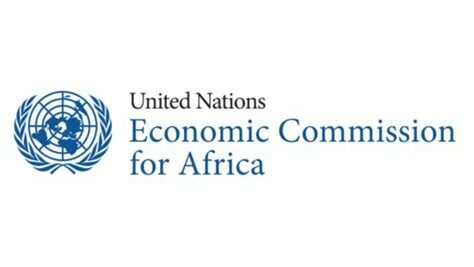
World Bank Group & ESMAP
The partnership between CCG and WRI has significantly advanced energy modelling training with the addition of new courses to CCG’s OpenLearn Collection

World Resources Institute
The partnership between Climate Compatible Growth (CCG) and the World Resources Institute (WRI) has significantly advanced energy modelling training with the addition of new courses to CCG’s OpenLearn Collection
Notably, WRI’s “Energy Access Explorer” course helps planners identify key areas for energy expansion, enhancing local capacity in the Global South. WRI also contributes by bringing trainers to CCG’s energy modelling platforms, further supporting hands-on capacity building. This initiative aligns with COP28’s focus on developing in-country expertise to reduce reliance on costly consultants, ensuring a lasting impact through freely accessible, open-source training.
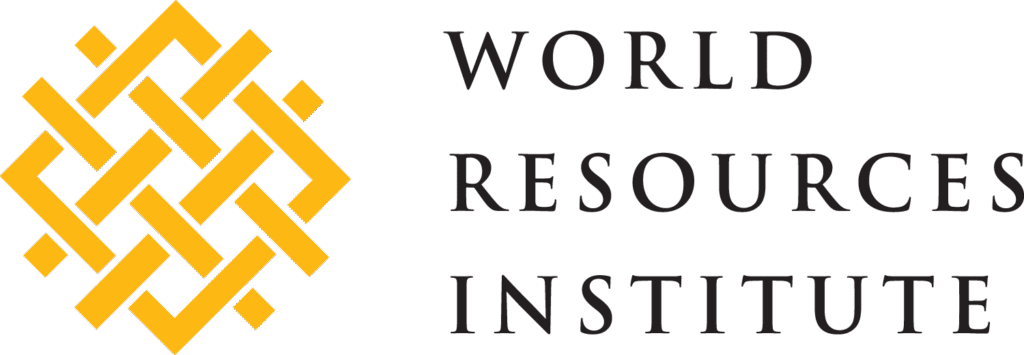
2050 Pathways Platform
The 2050 Pathways Platform provided substantial financial support to CCG training events, offering bursaries that enabled a wider range of students to participate.
The partnership between Climate Compatible Growth (CCG) and the World Resources Institute (WRI) has significantly advanced energy modelling training with the addition of new courses to CCG’s OpenLearn Collection.
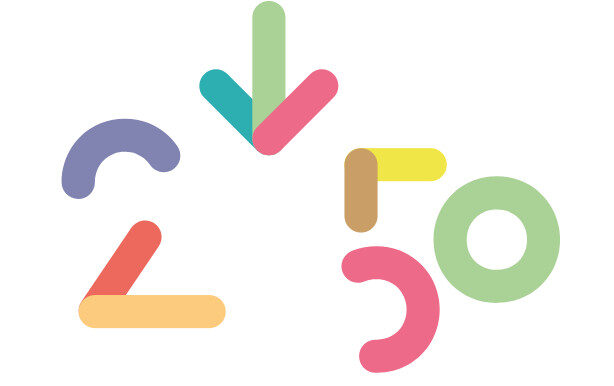
Engaging with Global Initiatives
CCG facilitates and contributes to several international networks and forums:
OpTIMUS Community
The OpTIMUS Community is a global network of experts and institutions dedicated to promoting the use of open-source energy modeling tools for sustainable development.

Comprising members from organisations like the World Bank, UNDESA, UNECA, KTH Royal Institute of Technology, and others, OpTIMUS facilitates collaboration, knowledge sharing, and capacity building. The community’s initiatives help countries develop and implement robust energy models, supporting evidence-based decision-making and policy planning to achieve sustainable energy transitions.
CCG’s partnership with the OpTIMUS Community has been instrumental in advancing global capacity-building efforts in energy modeling. Since 2020, CCG has supported and expanded OpTIMUS initiatives, hosting nine capacity-building events that offer free training on open-source energy modeling tools. These events, including the Energy Modelling Platforms (EMP) in Africa, Latin America, and the Global region, have grown significantly, now attracting hundreds of participants annually.
This collaboration, built on trust and demand, continues to empower practitioners worldwide and influence sustainable development policies.
Roundtable Initiative and the U4RIA Principles
The Roundtable Initiative on Strategic Energy Planning works with major development partners and technical institutions to improve the support they provide for energy planning in developing countries.

The Roundtable Initiative on Strategic Energy Planning was launched in 2017, and since 2022 CCG has acted as its Secretariat. There are yearly meeting meetings, capacity-building efforts, and community platforms. We have a separate page which gives full information about all of this work. Several international institutions are signatories to this initiative, which has five key principles acting as a code of conduct: National ownership, coherence and inclusivity, capacity, robustness, and transparency and accessibility.
The tenth Roundtable meeting took place in December 2024, at the International Energy Agency headquarters in Paris, France.
There you can also find out about the U4RIA principles. This stands for Ubuntu (community engagement), Retrievability, Repeatability, Reconstructability, Reproducibility, Interoperability and Auditability. We believe these factors are all needed for data, models, and standards to be successful and sustainable.
Green Grids Initiative
The Climate Compatible Growth (CCG) programme is instrumental in advancing global collaboration on green grids, supporting the Green Grids Initiative (GGI). Read more about this work on a separate page here.

African Institute for Sustainable Energy and Systems Analysis (AISESA)
CCG partnered with AISESA to support the development of a major new network of African energy scholars. This included a grant of £55k, along with £25k of co-funding from the European Commission for an inaugural meeting.
The network will enhance research and analysis capabilities across the region to support sustainable energy developmentCCG partnered with AISESA to support the development of a major new network of African energy scholars. This included a grant of £55k, along with £25k of co-funding from the European Commission for an inaugural meeting.

Sustainable Mobility for All (SuM4All)
CCG is actively engaged in an ongoing review of the SuM4All initiative, and is helping to shape its strategic trajectory.
SuM4All is a global coalition of over 55 organisations working together to transform the future of mobility. The initiative aims to ensure that mobility systems worldwide are safe, accessible, efficient, and environmentally friendly.
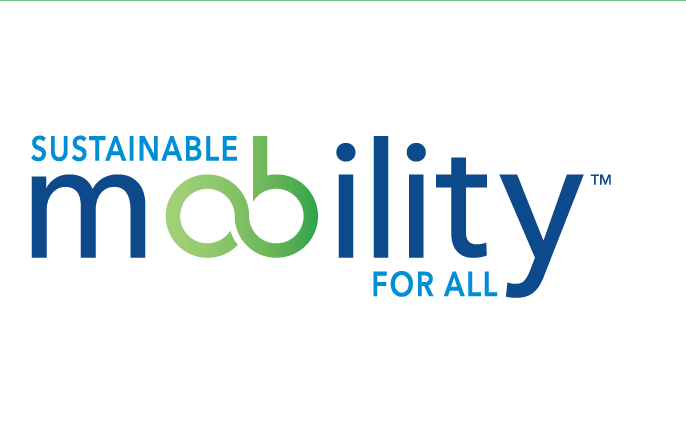
SuM4All promotes sustainable transport policies and practices that contribute to economic growth, social equity, and environmental sustainability, guiding countries and regions toward a more sustainable and inclusive future for mobility.
At the moment, CCG is involved in an ongoing review of the initiative. This involes participating in key stakeholder meetings and producing an options paper to guide discussion about the initiative’s future direction. This is crucial work that will help shape the ongoing strategy of SuM4All, ensuring that sustainble mobility remains a priority in global development agendas.
Energy Transition Council (ETC) & Rapid Response Facility (RRF)
The Energy Transition Council (ETC) is a global dialogue platform that brings together over 30 governments and institutions to provide political, financial, and technical leadership in the power sector. Part of this work includes chairing the Rapid Reponse Facility, coordinates rapid technical assistance requests from partner countries.
The ETC is co-chaired by the governments of the UK and the Philippines. It aims to accelerate the clean energy transition by focusing on areas such as distributed and large-scale renewables, green grids, and energy efficiency. You can read more about the ETC here.

CCG continues to chair the Energy Transition Council’s (ETC) Rapid Response Facility (RRF), playing a crucial role in supporting global energy transitions. Our partnership involves active engagement with ongoing projects in countries such as Bangladesh, India, Indonesia, Nigeria, Pakistan, and the Philippines. Through this collaboration, CCG has helped develop a new monitoring and evaluation framework, ensuring that energy transition initiatives are effectively implemented and monitored, thereby contributing to a sustainable and resilient energy future.
Conference of the Parties
CCG participates actively in the annual United Nations Framework Convention on Climate Change COP meetings, through a variety of events, side events and working sessions.
More about CCG
